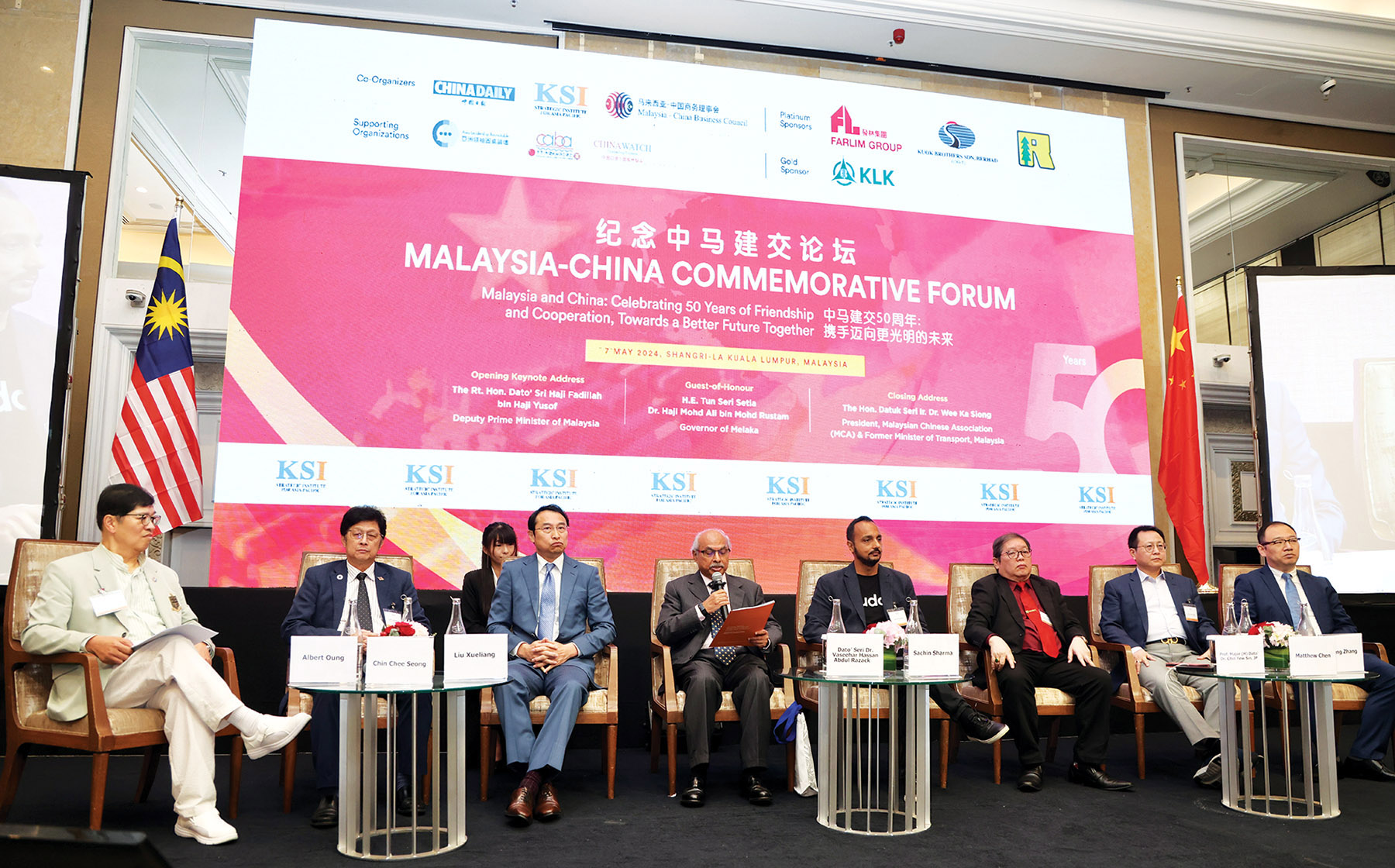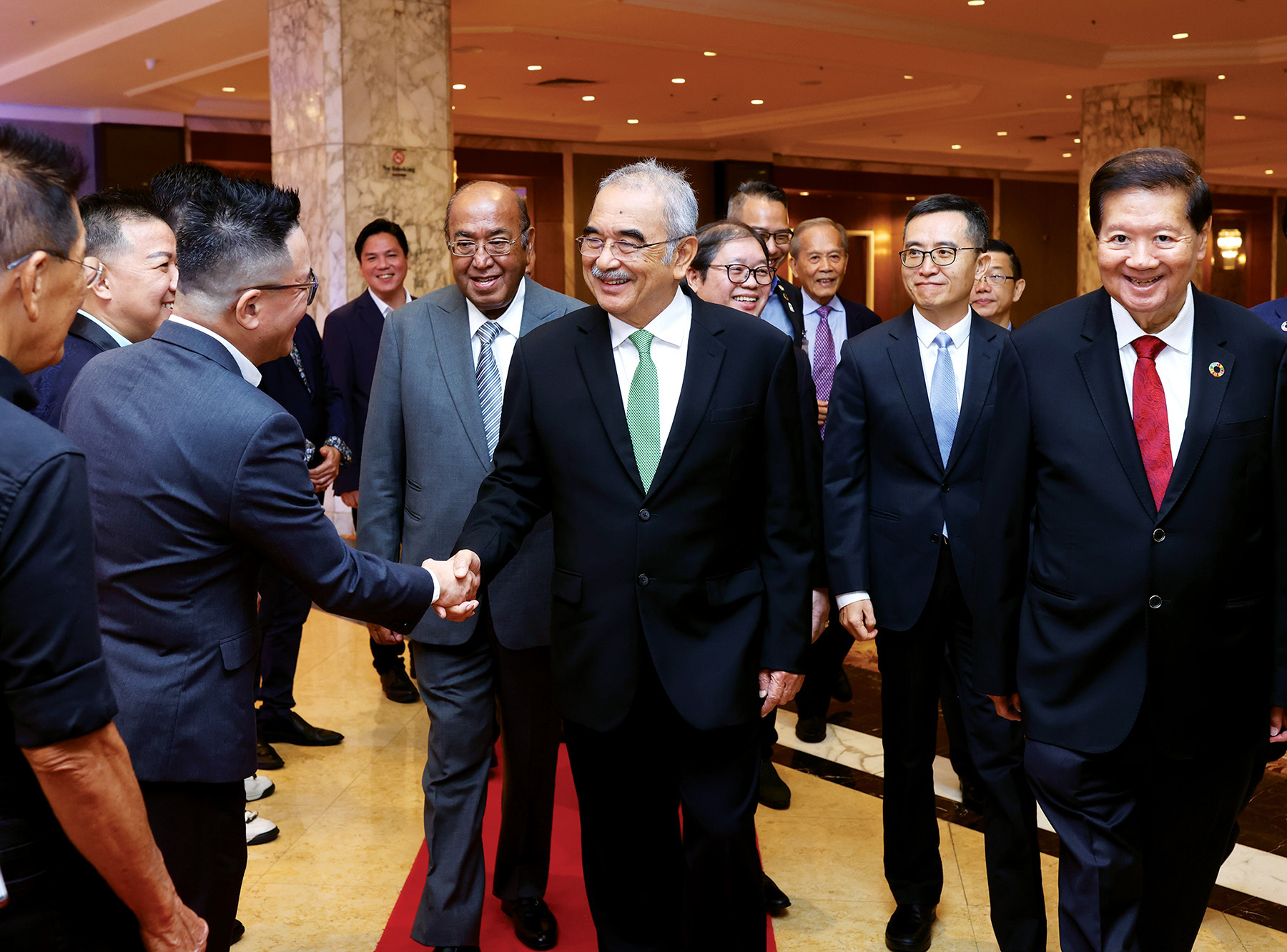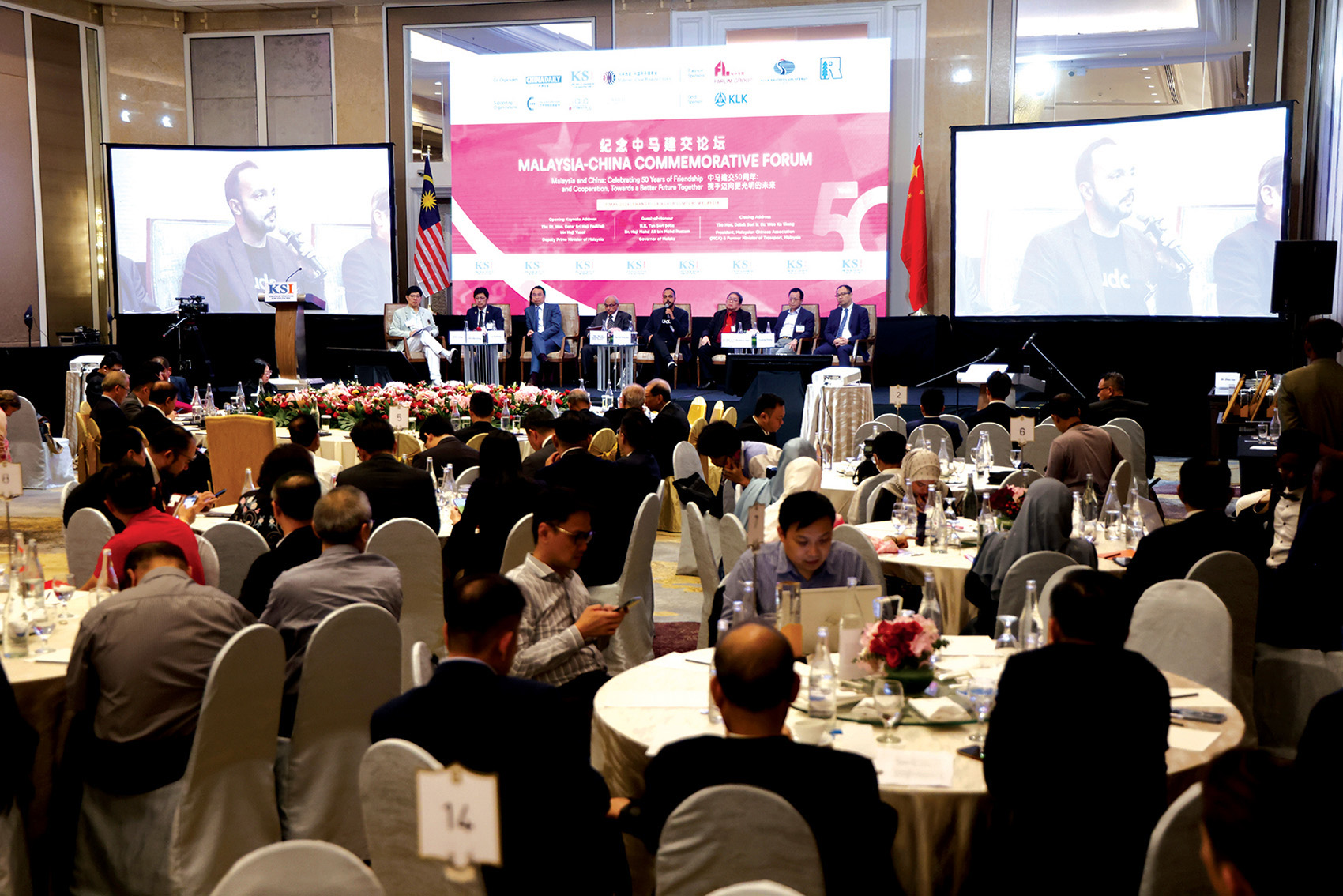
China and Malaysia can work together to accelerate digital transformation and green growth for a more sustainable Asia, regional business leaders told a forum in Kuala Lumpur on Tuesday.
“Today, we are delighted to see that the development of electric vehicles is becoming a major trend,” said Liu Xueliang, general manager of Chinese EV maker BYD Asia Pacific Auto Sales Division, and president of BYD Japan.
After BYD officially entered the Malaysian market at the end of 2022, the company already accounts for more than 40 percent of the local EV market, with total orders exceeding 10,000 units, Liu said.
READ MORE: China-Malaysia ties reach new horizons of cooperation
The achievement not only showed the recognition of BYD by Malaysian consumers but also indicated how the firm has realized the future direction of economic growth through EVs, Liu said at a panel themed “Working Together for Green Growth and Digital Economy” at the Malaysia-China Commemorative Forum.
To commemorate the 50th anniversary of diplomatic relations between China and Malaysia on May 31, China Daily — together with the Kuala Lumpur-based think tank KSI Strategic Institute for Asia Pacific, and the Malaysia-China Business Council — organized the forum, bringing together leaders of government, business, and academia to evaluate past accomplishments and explore future direction.

Zhang Fupeng, vice-president of Huawei Asia Pacific, said the Chinese tech giant is working to provide localized solutions in Malaysia to enhance connectivity and accelerate digitalization.
“In Malaysia, we now have more than 1,000 partners,” said Zhang. “We provide platforms for finance, agriculture, tourism, education, and healthcare.” He added that there are also talent programs for Malaysian students to adapt to digital innovation.
Noting that Malaysia — the digital hub of the Association of Southeast Asian Nations — will face the challenge of a power gap in the future due to an increasing number of data centers, Zhang said Huawei can provide energy solutions to help fill the gap.
Matthew Chen, CEO of OneConnect Financial Technology, said the company is working to build a digital trade corridor to connect companies — especially small and medium-sized enterprises that usually face difficulty getting loans — in China and other countries involved in the Belt and Road Initiative.
The fintech firm is an associate of Ping An Insurance (Group) Company of China, one of the largest financial services companies in the world.
Based on OneConnect’s rich experience supporting SMEs in both China and overseas markets like Singapore, Chen said he wishes to bring similar digital trading corridors to Malaysia and help facilitate cross-border data sharing.

Chin Chee Seong, secretary-general of the SME Association of Malaysia, said Malaysia and China have a lot of potential for cooperation in the green and digital economies. He added that he hopes Chinese companies can provide more technology transfer to Malaysian partners to learn from.
Chin said that cooperation in the circular economy and green supply chain will also be essential to SMEs as they will need the resources.
“Green nowadays is a matter of action,” said Albert Oung, president of the World Green Organisation, a Hong Kong-based nongovernmental organization.
Referring to regional initiatives such as the Asia-Pacific Green Deal and the ASEAN Green Deal, Oung said there is a need for a new way of doing business because the region does not lack technology but lacks ethical application that follows social justice.
ALSO READ: Building on the milestones in China-Malaysia ties
Southeast Asia has seen tremendous growth in e-commerce in recent years but the region is still largely in development mode, so it is important to learn from China, said Sachin Sharma, co-founder and chief product officer of the financial services technology company Audax in Singapore.
Chin Yew Sin, president of the Global BRI Strategy Research Centre, said Malaysia can learn from China to advance infrastructure and make full use of digital technology, which will help the country be more competitive and attract more foreign investors.
Vaseehar Hassan Abdul Razack, executive vice-chairman of the KSI Strategic Institute for Asia Pacific and former chairman of RHB Islamic Bank, moderated the session.


